2013 marks the 20th anniversary of the
infamous “Anti-Defamation League (ADL) files
controversy” in which the ADL
was discovered infiltrating, spying on
and otherwise violating the
privacy rights of a large number of anti-Apartheid,
civil-rights and peace groups through
the unlawful acquisition of private data from
corrupt local law enforcement
officials.
The single best retrospective is from long-time Middle East analyst and broadcaster Jeffrey Blankfort, who was also among those targeted by the ADL (see, “The Strange History of the Anti Defamation League: ADL Spies“).
Many Americans were outraged
in 1993 after reading mainstream press
accounts of a vast national ADL spy
network with organelles passing
information not only to Israel’s
Mossad but also Apartheid South
African intelligence services—possibly
resulting in the mysterious death of Chris Hani and
the rushed deportation/detention of
many Palestinians. Declassified
FBI files newly reveal not only the
flood of constituent letters pouring
into Congress and the FBI’s
unfulfilled assurances that justice
would be served, but the ADL’s use of proven
tactics that the Israel lobby has deployed
since the 1940’s to skirt accountability for
major criminal violations.
The FBI f
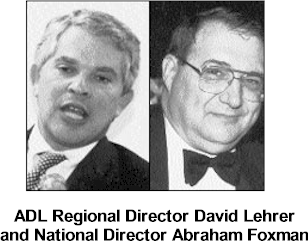 iles,
originally scheduled for declassification in 2038, were
suddenly released to IRmep under the
Freedom of Information Act on November 20, 2013
and may now be browsed and downloaded from the
Israel Lobby Archive.
iles,
originally scheduled for declassification in 2038, were
suddenly released to IRmep under the
Freedom of Information Act on November 20, 2013
and may now be browsed and downloaded from the
Israel Lobby Archive.
It is a timely release since one of Israel’s most harmful spies, Arnon Milchan, is openly boasting about his criminal exploits and Americans may soon demand not only that unsuccessful old law enforcement tactics be retired but new strategies be fielded to punish Israel lobby wrongdoers and end their long stint of immunity.
ADL stalls for time
A March 16, 1993 memo launched the ADL espionage investigation from the FBI’s Los Angeles office. The FBI discovered “unidentified individuals at the Anti-Defamation League (ADL) in possession of [Federal] Bureau [of Investigation] classified information” along with “confidential police reports and files belonging to the San Francisco Police Department” after the ADL’s Los Angeles and San Francisco offices were raided and searched under warrant. Until that time, Israel was interested in preserving close economic and military ties (including nuclear weapons sales pitches) to Apartheid South Africa. The ADL, in constant contact with the Israeli consulate which frequently tasked it for help, was eager to pitch in.
The FBI discovered one of its own files possessed by ADL’s Los Angeles division was “a summary of activities relating to the African National Congress (ANC).” The FBI immediately noticed the ADL—which had invested decades securing a forced relationship with the FBI by lobbying top elected officials—was suddenly “uncooperative” and stalling for time. By month’s end, Israel’s “heavy guns” had been drawn to snuff out the fledgling investigation.
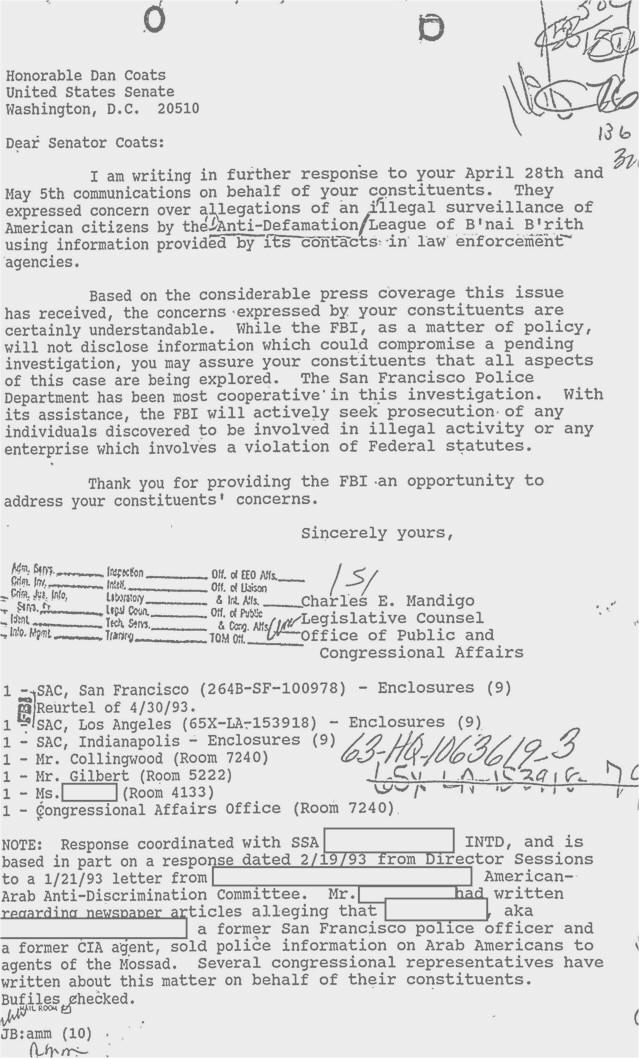
Israeli generals visit the U.S. attorney general
The FBI already had a long, unhappy history of outside interference in its Israel espionage and smuggling investigations, and the ADL files affair was no exception. In the 1940s, the FBI had seen the sudden collapse of a pipeline of indictments against hundreds of Americans illegally smuggling conventional weapons to Jewish fighters in Palestine funded by Jewish Agency paymasters operating out of New York. The intervention of Abraham Feinberg, a major campaign contribution bundler and Israeli government officials proved too much for the Justice Department, which even as evidence continued to pile up, it failed to prosecute and dodged civic demands for justice.
A March 31, 1993 FBI memo reveals “two persons, described as ‘Israeli Generals’ are in or are about to travel to Washington, D.C…the purpose of their travel is to try to visit the Attorney General to press for an end to the FBI’s investigations…The FBI’s investigations of these matters are causing a great deal of interference in the U.S. activities of the Anti-Defamation League…and so Israel is seeking to intercede on the ADL’s behalf.”
Americans urge due process
Mailbags of letters to Congress were forwarded to the FBI and attorney general urging the swift criminal prosecution of the ADL. Robert Kerrey, John McCain, Richard Lugar, Hank Brown, Jill Long, Dennis DeConcini, and Ernest Hollings, while often distancing themselves from the substance of the complaints, dutifully forwarded the outraged letters. The FBI’s Legislative Counsel Charles E. Mandigo reviewed demands to prosecute both the ADL and “a former San Francisco police officer and former CIA agent [Thomas Gerard]” who “sold police information on Arab Americans to agents of the Mossad.” Mandigo assured them “the FBI will actively seek prosecution of any individuals or any enterprise discovered to be involved in illegal activity in violation of federal statutes….” However, like earlier constituents that in the 1960’s demanded another Israel lobbying organization, the American Zionist Council, be registered as an Israeli foreign agent, they were all in for a huge disappointment.
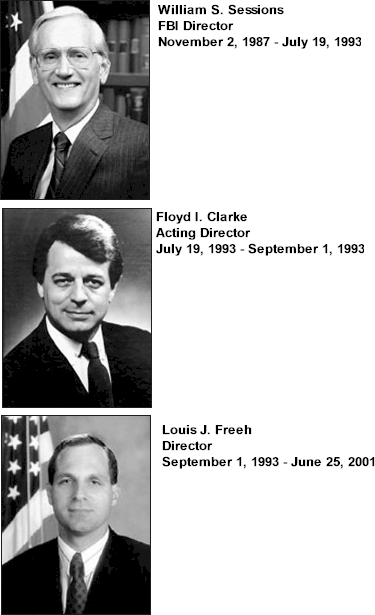 Turnover
Turnover
After interviewing a disgruntled former ADL “fact finder” librarian who had curated information and worked with long-time ADL undercover contractor Roy Bullock, the FBI quickly focused in on ADL Regional Director David Lehrer as the prime suspect for acquiring and passing classified FBI files throughout the ADL. The FBI LA office requested several times that the FBI director authorize a formal interview with Lehrer. But FBI Director William Sessions, a holdover from the Reagan administration, left in July of 1993. Acting director Floyd Clarke took no action before leaving on September 1.
Not until September 23, 1993 did the Clinton administration’s new FBI Director Louis Freeh authorize special agent in command Edward J. Curran the only interview that could possibly lead to a prosecution: “personally interview David Lehrer, Regional Director – ADL – Los Angeles….The interview is to be conducted according to FCIM 65-5.1 guidelines, and recorded on an FD-302 in the event this matter warrants possible prosecution.”
But it was much too late. Israel already had half a year to lobby for closure.
On December 1, 1993, Israeli Justice Minister David Libai met for an hour with Attorney General Janet Reno. Libai spent thirty minutes on a futile attempt to secure Reno’s recommendation to President Clinton that Israeli spy Jonathan Pollard’s sentence be commuted.
What Libai did for the remaining thirty minutes of the “private” meeting was not disclosed, but on March 22, 1994 the FBI’s Los Angeles office indicated it was closing the ADL espionage investigation—apparently without ever having interviewed Lehrer.
By April, Janet Reno was gushing over the ADL’s latest report on militias and the FBI-ADL uncomfortable “special relationship”—first ordered by J. Edgar Hoover and later renewed by FBI director William Webster—was seemingly back on track.
Fire “wrong–doers” but continue activities
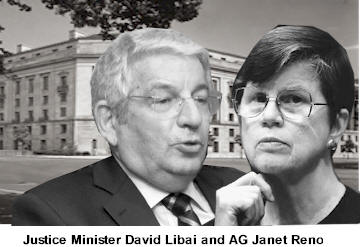 Until
this file declassification and release, it was never clear to
outsiders whether the FBI had properly investigated ADL’s
illegal circulation of its classified files. Only now can
the ADL “files controversy” formally enter the pantheon of
“Israel lobby criminal investigations that were improperly
closed.” The 1993 incident bears uncanny similarities to
the
2005 AIPAC espionage affair, in which a Defense Department
official and two AIPAC employees where indicted under the
Espionage Act for circulating classified national defense
information in an unsuccessful attempt to foment a U.S. attack
on Iran. AIPAC jettisoned Steven J. Rosen and Keith
Weismann for conduct that “did not
comport with standards that AIPAC expects of its employees.”—despite
the fact that the pair engaged in activities long rewarded by
AIPAC. Its actions suggest AIPAC wanted to prevent a fatal
criminal indictment of the entire organization. Obama
administration Justice Department officials quashed the criminal
prosecution shortly after taking office in 2009. Like
AIPAC, ADL National Director Abraham Foxman fired a “shocked
and dismayed” Lehrer in 2002, but without explanation.
Although at the time many speculated that the termination was
the ADL national office’s effort to prevent the increasingly
autonomous West Coast offices from splitting off, it also could
have been the delayed fulfillment of a non-prosecution agreement
in order to finally close the “ADL files controversy.”
Only Abraham Foxman and the Justice Department know for sure.
Until
this file declassification and release, it was never clear to
outsiders whether the FBI had properly investigated ADL’s
illegal circulation of its classified files. Only now can
the ADL “files controversy” formally enter the pantheon of
“Israel lobby criminal investigations that were improperly
closed.” The 1993 incident bears uncanny similarities to
the
2005 AIPAC espionage affair, in which a Defense Department
official and two AIPAC employees where indicted under the
Espionage Act for circulating classified national defense
information in an unsuccessful attempt to foment a U.S. attack
on Iran. AIPAC jettisoned Steven J. Rosen and Keith
Weismann for conduct that “did not
comport with standards that AIPAC expects of its employees.”—despite
the fact that the pair engaged in activities long rewarded by
AIPAC. Its actions suggest AIPAC wanted to prevent a fatal
criminal indictment of the entire organization. Obama
administration Justice Department officials quashed the criminal
prosecution shortly after taking office in 2009. Like
AIPAC, ADL National Director Abraham Foxman fired a “shocked
and dismayed” Lehrer in 2002, but without explanation.
Although at the time many speculated that the termination was
the ADL national office’s effort to prevent the increasingly
autonomous West Coast offices from splitting off, it also could
have been the delayed fulfillment of a non-prosecution agreement
in order to finally close the “ADL files controversy.”
Only Abraham Foxman and the Justice Department know for sure.
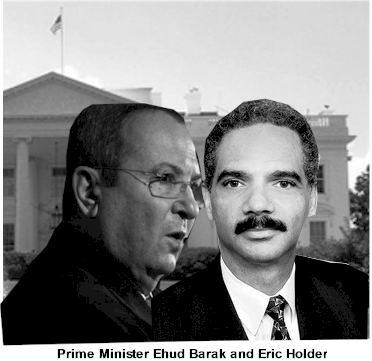 The
ADL files controversy is not only similar to the 2005 AIPAC
espionage affair but also an earlier
1985 espionage
investigation of AIPAC for acquiring classified trade
information. The very solid FBI investigation was suddenly
cut short and terminated, presumably after the capitulation of a
heavily-lobbied attorney general. In the end, the Reagan
Administration did not allow the FBI or public to know who in
the International Trade Commission subverted due process by
passing a compilation of
secret
industry data of seventy American groups opposed to
unilateral trade concessions to Israeli Minister of Economics
Dan Halpern and AIPAC. Yet another 1960’s effort to regulate
Israel lobbying by properly registering front groups as Israeli
foreign agents similarly collapsed after JFK’s assassination
when the Justice Department leadership inevitably
underwent rapid turnover.
The
ADL files controversy is not only similar to the 2005 AIPAC
espionage affair but also an earlier
1985 espionage
investigation of AIPAC for acquiring classified trade
information. The very solid FBI investigation was suddenly
cut short and terminated, presumably after the capitulation of a
heavily-lobbied attorney general. In the end, the Reagan
Administration did not allow the FBI or public to know who in
the International Trade Commission subverted due process by
passing a compilation of
secret
industry data of seventy American groups opposed to
unilateral trade concessions to Israeli Minister of Economics
Dan Halpern and AIPAC. Yet another 1960’s effort to regulate
Israel lobbying by properly registering front groups as Israeli
foreign agents similarly collapsed after JFK’s assassination
when the Justice Department leadership inevitably
underwent rapid turnover.
De facto Immunity
It is little wonder that Israeli spy Arnon
Milchan
is now so openly boasting about his years spent pilfering
American
nuclear weapons technology while working as a successful
Hollywood movie producer. Yet another
suspected Israeli spy, fugitive financier Marc Rich, benefitted
greatly when Deputy Attorney
GeneralEric Holder
(today the attorney general) was successfully
lobbied by Israeli Prime Minister Ehud Barak to recommend a
2001 Clinton presidential pardon. History is
unequivocal that all it takes is a few calls to the
ever-compliant attorney general
for a visiting delegation of Israeli
government officials to subvert rule of law in America.
Copyright http://www.IRmep.org.2013


































